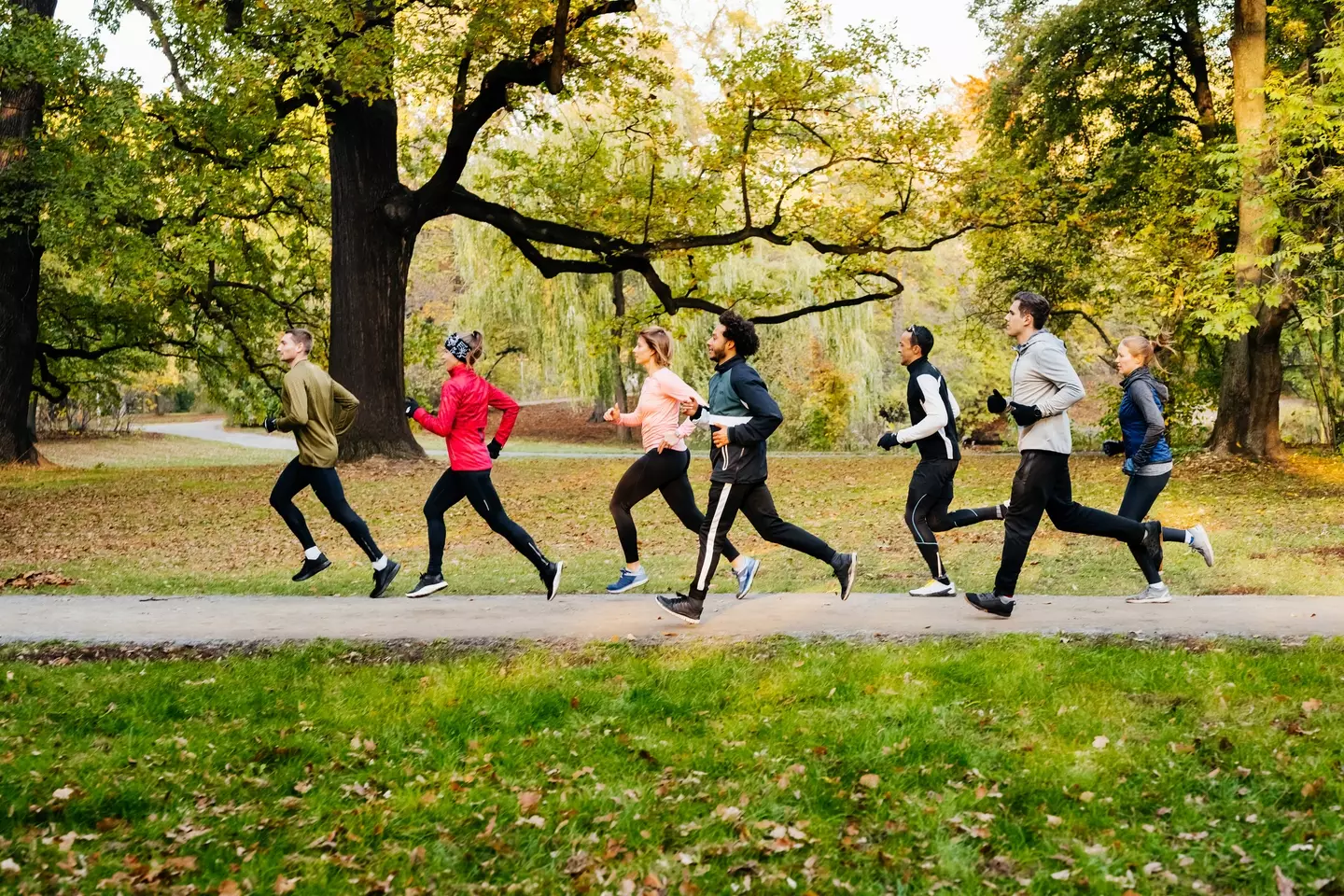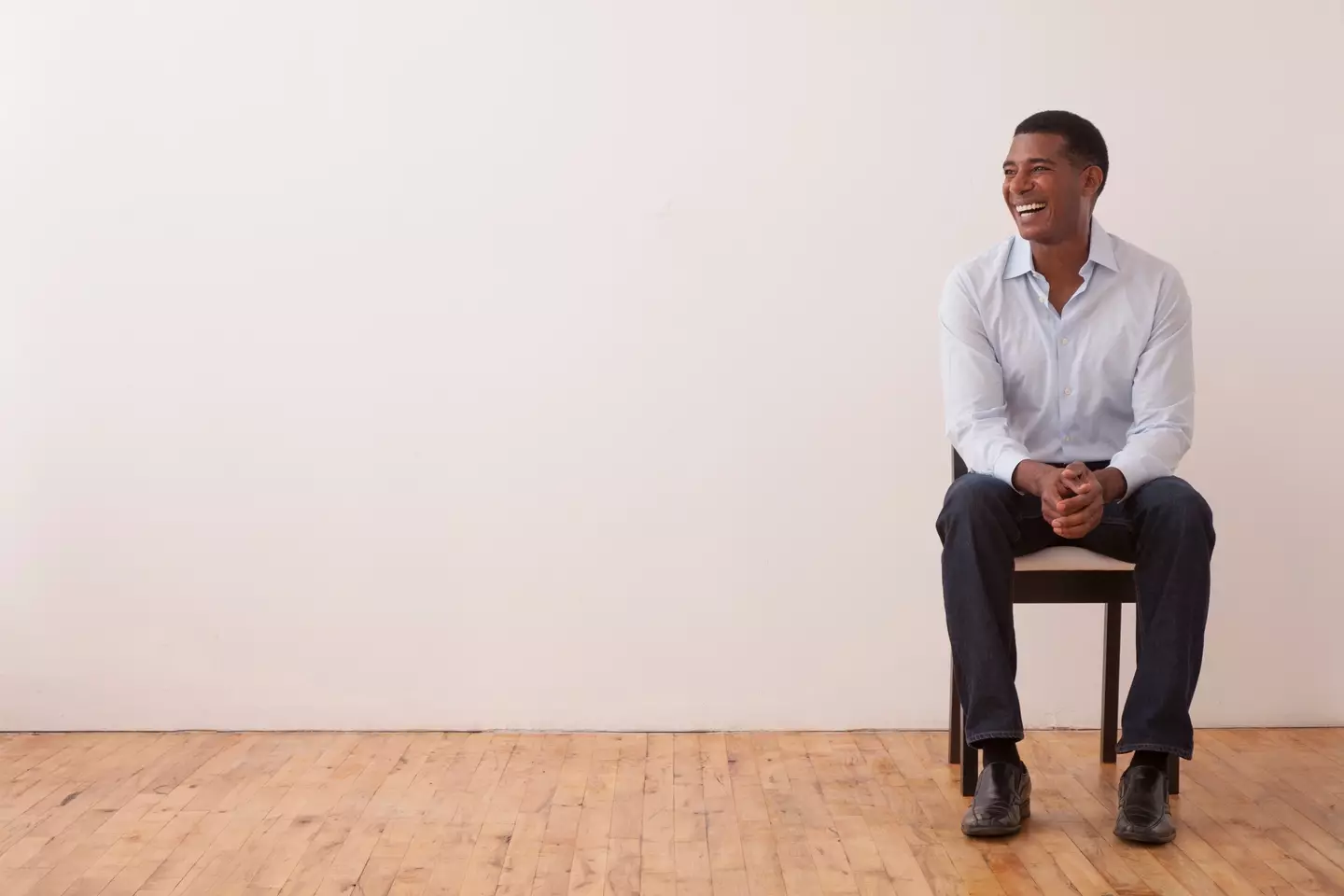
A simple fitness test that takes just one minute to complete could provide insight into how long you'll live for.
Living a healthy lifestyle is key for enhancing longevity, and part of that means maintaining your fitness, eating well and regularly exercising.
The test, which is called the 1MSTS, takes just 60 seconds to complete and aims to assess your exercise capacity.
It's not difficult to complete and all you need is a chair. Essentially, the test involves counting the number of times you are able to sit and stand up over the period of one minute.
Advert
Pulmonologist and respiratory medicine consultant Dr Ricardo José told Metro: "Broadly speaking, healthy adults under 40 years old complete at least 40 stands in one minute.

"Performance declines with age, with around 30 to 40 stands for middle-aged adults and 20 to 30 stands for those over 70."
How to complete the test
To complete the test, you'll need to follow these steps:
- Take a chair and place it with its back against a wall. Ideally, the chair should not have arm rests
- Set a timer for one minute
- Sit in the chair and place your feet on the floor with your knees at a 90° angle
- Stand from the chair, but do not use your hands, then sit back down. This counts as one repetition
- Continue as many times as you can in the 60-second period, and count as you go

Advert
The Primary Care Respiratory Society says it's important not to take the test if you have a health condition that contraindicates exercise of this nature, or if you are feeling unwell, dizzy, light-headed, or nauseous.
You should also not complete the test if you have an infection, or joint or muscle pain, or if you have been taking drugs or alcohol.
It should not be taken in too hot or too cold environments, or if you are feeling unusually fatigued.
It should also be stopped if the person feels unwell, experiences chest pain, dizziness or breathlessness.
Advert
If you're curious to know how your fitness levels measure up, a Swiss study published in the International Journal of Public Health revealed that the median number of repetitions ranged from 50 per minute in young men and 47 per minute in young women aged 20 to 24 years.
Meanwhile, the number dropped to 30 per minute in older men and 27 per minute in older women aged 75 to 79 years.
In one study, published in the European Journal of Preventive Cardiology, a link was found between how well a person performed in the test, and how long they lived for.

Advert
A team of researchers at the Exercise Medicine Clinic in Rio de Janeiro recruited over 4,000 adults, mostly men, between ages 46 to 75.
Participants received a perfect score if they could transition between sitting or standing without touching anything, but had points deducted if they used any body parts to aid or guide them.
Over a decade later, most of the perfect scorers were still alive, compared to 90 percent of those who had lost two points and just under half of those with lower scores.
Among participants with heart disease, those with lower scores were more likely to have passed away.
Advert
Even though the study didn't directly link a perfect score to longevity, lead author Dr Claudio Gil Araújo said 'it is quite reasonable to expect this'.
Meanwhile, consultant geriatrician Jugdeep Dhesi told BBC Future: "What you can use them [the sit-to-stand test results] to say is – this is something we need to think about, and there are treatments or interventions that we should be doing to try to improve a person's health outcomes, their quality of life, their independence and to help them to live well for longer, which is the really key bit.
"Doing these kinds of tests at home helps you to see where you are in relation to other people of your age and so it can be a really useful prompt to remind you to do all the things that you can do to get better and stay better. So, I think it's a really good way of empowering people to take control of their own health."
